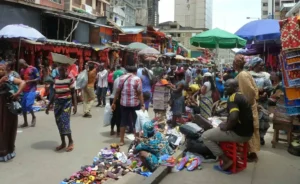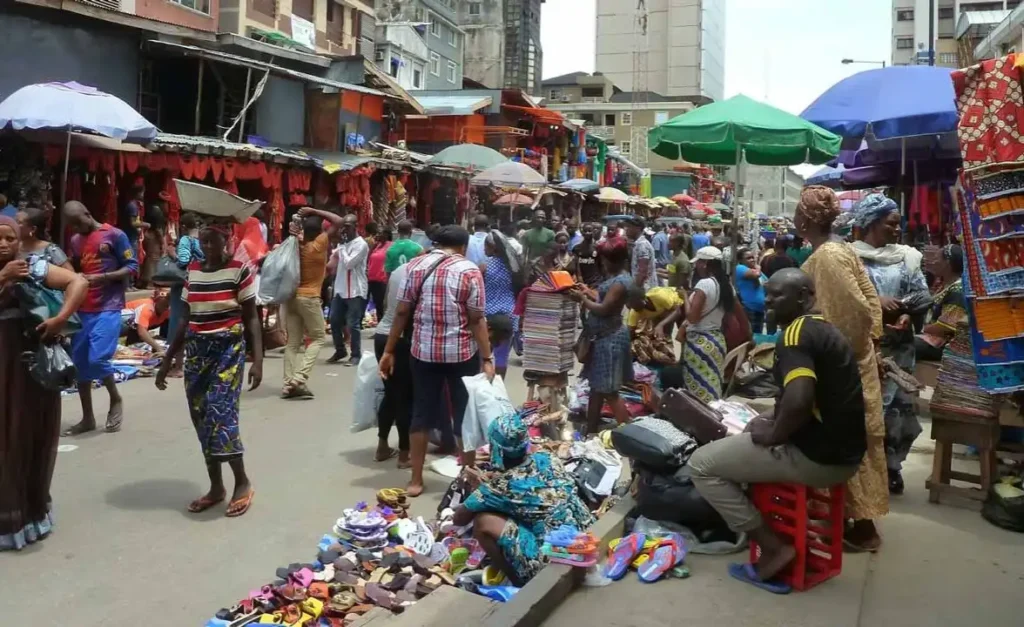In the heart of Abuja’s Wuse District, 62-year-old Mama Emma sits under the sun, selling groundnuts and bananas — a trade she has relied on for over 20 years to feed her family and send her children to school. But today, her voice carries despair.
“I used money from the business to train my children in private schools,” she recalls. “Now I can’t even buy stock in bulk.”
The removal of fuel and currency subsidies by President Bola Tinubu in 2023 has pushed many Nigerians, especially informal workers like Mama Emma, to the brink.

Struggling to Survive
Once able to purchase stock from markets in Garam, Kuduru, and Zuma, Mama Emma now depends on credit from wholesalers in Bwari. She fears her two sons may drop out of university in Keffi due to financial hardship.
“We don’t even have enough food at home,” she says. “A bottle of groundnuts sold for ₦400 two years ago — now it’s ₦1,500 to ₦1,800. People don’t buy anymore.”
Similarly, Mama Mairo, 65, who has sold the same goods for three decades, laments:
“I used to buy bulk with ₦2,500. Now I need ₦20,000 to ₦30,000. Customers don’t have money.”
With inflation driving up the cost of goods and services, many Nigerians are losing their purchasing power, and micro-businesses are shutting down.
Informal Sector: A Critical Safety Net
The informal sector — comprising street vendors, taxi drivers, artisans, and small-scale traders — employs over 50% of Nigerians and contributes about 65% of the national GDP. For millions, it’s a lifeline amid growing economic uncertainty.
But the removal of fuel subsidies and the naira’s devaluation have worsened conditions. Food inflation soared to 39.53% in July, and while headline inflation dropped slightly to 33.4%, the cost of living remains alarmingly high.
Card Over Cash: A New Challenge
A shift in payment trends has also disrupted informal businesses. According to Moniepoint, card payments now make up 80.2% of transactions, a sharp rise spurred by Nigeria’s 2023 cash shortage and naira redesign. Many vendors have had to adapt quickly to digital transactions despite limited access to infrastructure and smartphones.
Still, the sector shows resilience — 58% of informal business owners are under 34, many driven into entrepreneurship due to limited formal job opportunities.
Taxi Drivers: Fuel Costs and Harassment
Taxis in Abuja are another informal livelihood under pressure. At Nicon Junction Park, Ambrose Moses, 40, leads a union of taxi drivers. He says rising fuel prices — now at ₦897 per litre — are making operations unsustainable.
“It feels like we are working just to buy fuel,” says Collins Nwa-Abasi, 50. “And when we raise fares, passengers resist.”
Drivers also face harassment and high towing fees from Vehicle Inspection Officers (VIOs). Mr Nwa-Abasi claims fees have risen from ₦5,500 to over ₦100,000, calling it a “business” for enforcement agents.
Despite the growth of ride-hailing platforms like Uber and Bolt, drivers remain optimistic.
“Uber has its people. We have ours,” says Mr Moses. “Not everyone can afford an app.”
Failed Grant Scheme
In March, the federal government launched the Presidential Conditional Grant Scheme (PCGS) to support small businesses with ₦50,000 grants. Yet many informal traders remain unaware of it.
Critics like economist Paul Alaje say the scheme is ill-suited to the realities of small traders.
“It doesn’t address the needs of hawkers or informal business owners,” he says, advocating instead for microcredit schemes run through trade associations, offering low-interest loans with flexible repayment schedules.
He suggests leveraging local networks, mentorship programmes, and financial literacy initiatives to ensure long-term impact.
Policy Disconnect and the Ministry’s Silence
When PREMIUM TIMES contacted the Ministry of Industry, Trade and Investment, Assistant Director of Press Felicia Adeyemo admitted she was unaware of the grant scheme — a troubling sign of disconnection between policy and implementation.
Looking Ahead: Tech as a Lifeline
Despite grim conditions, Mr Alaje sees hope in technology: mobile banking, digital marketplaces, and e-learning platforms can revolutionise access to finance, markets, and training for informal workers.
“Technology can help close the policy gaps,” he says. “But it must be paired with genuine government support and grassroots involvement.”
Conclusion
Nigeria’s informal sector — a resilient, resourceful backbone of the economy — continues to weather relentless storms. From roadside vendors to taxi drivers, millions of Nigerians are carrying the weight of inflation, policy shifts, and poor infrastructure.
They remain the lifeblood of communities and deserve not just recognition but real, accessible support.







